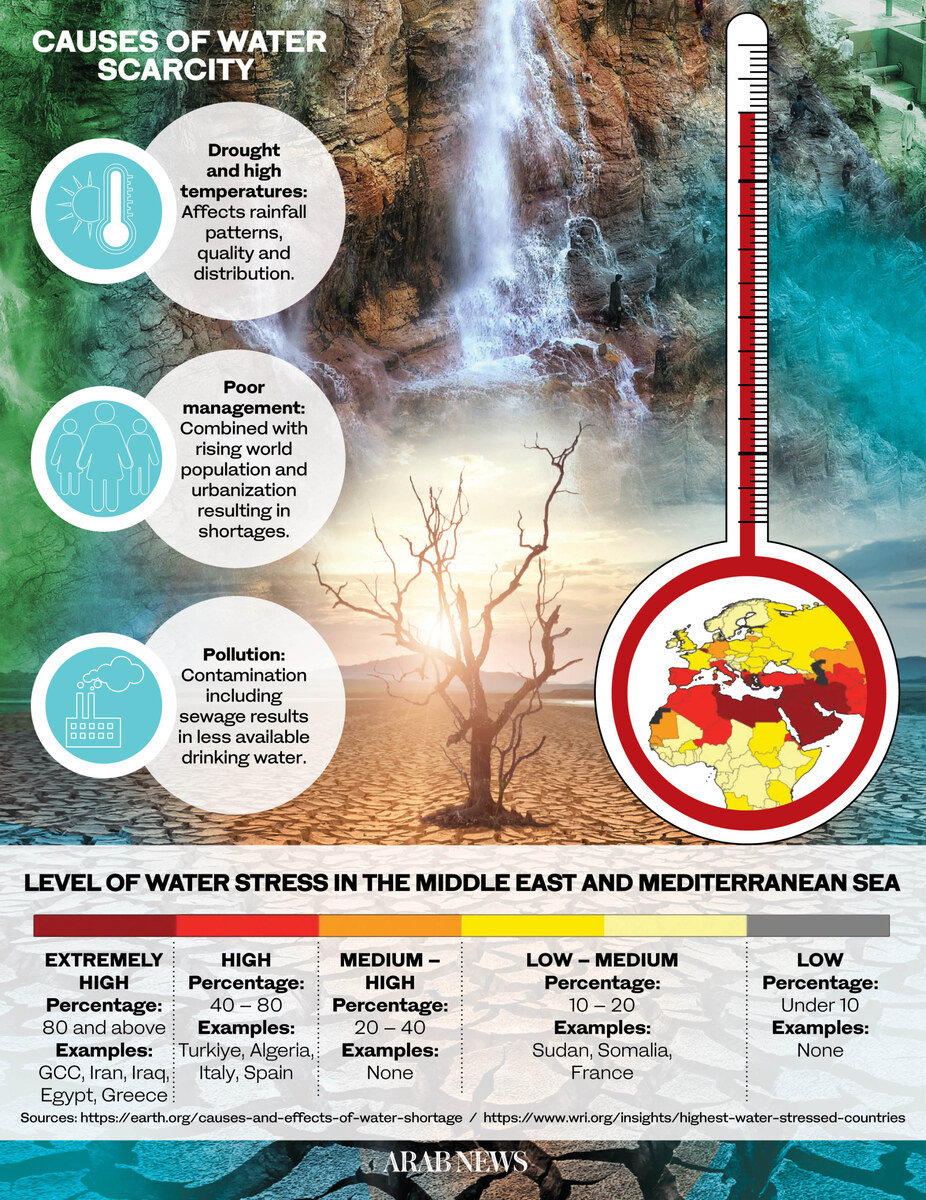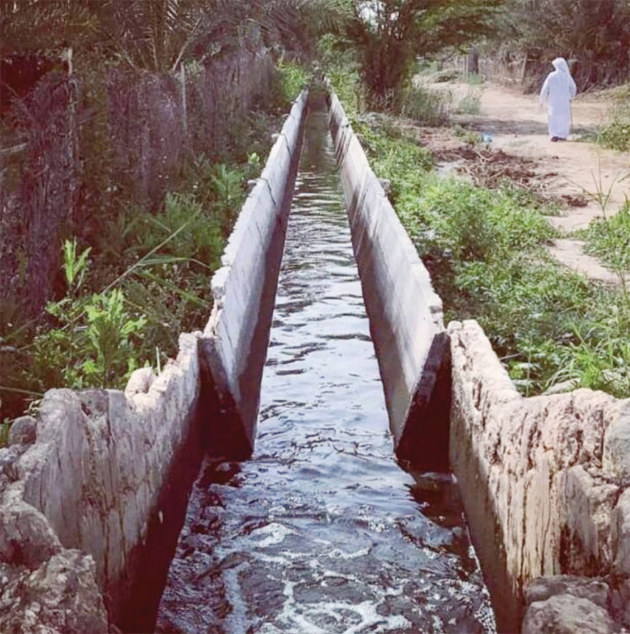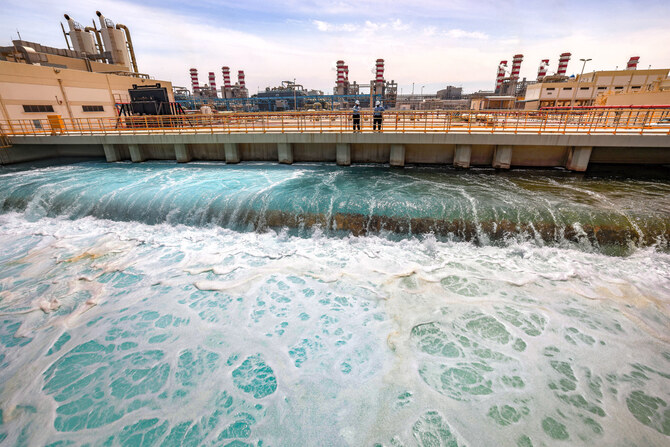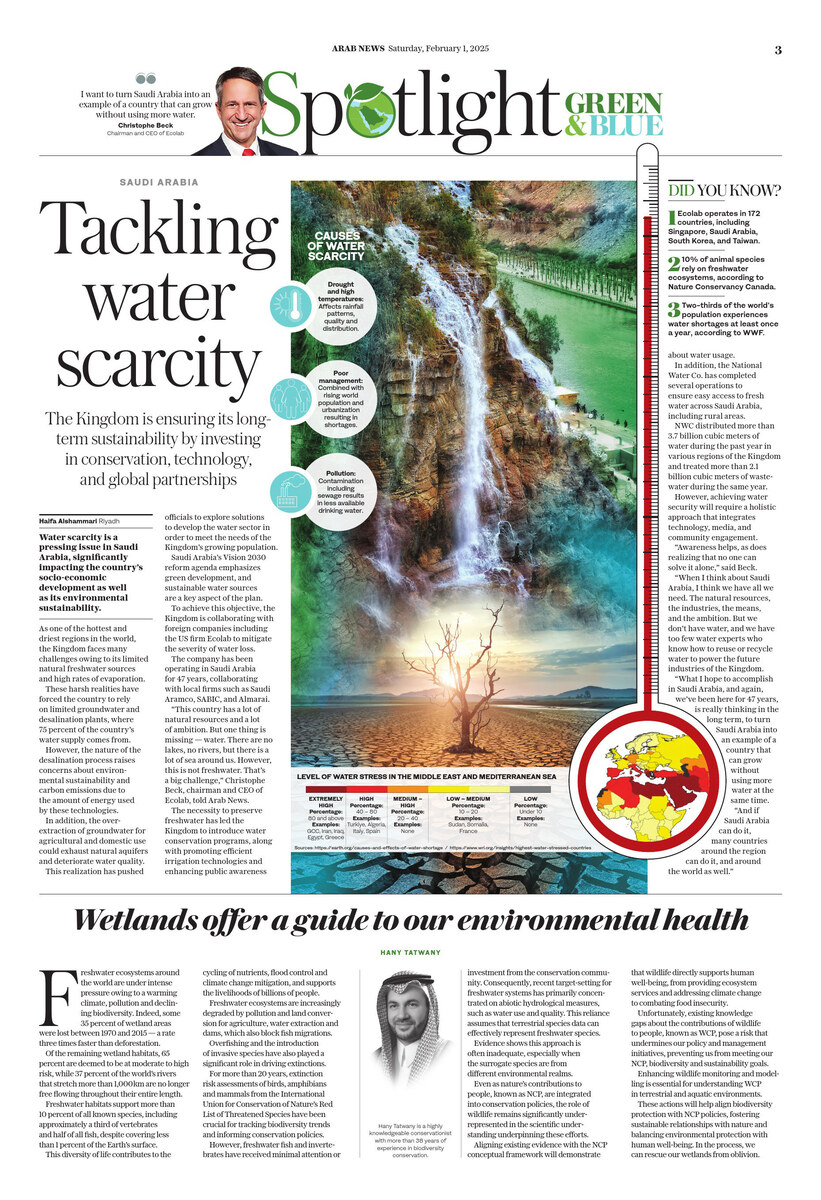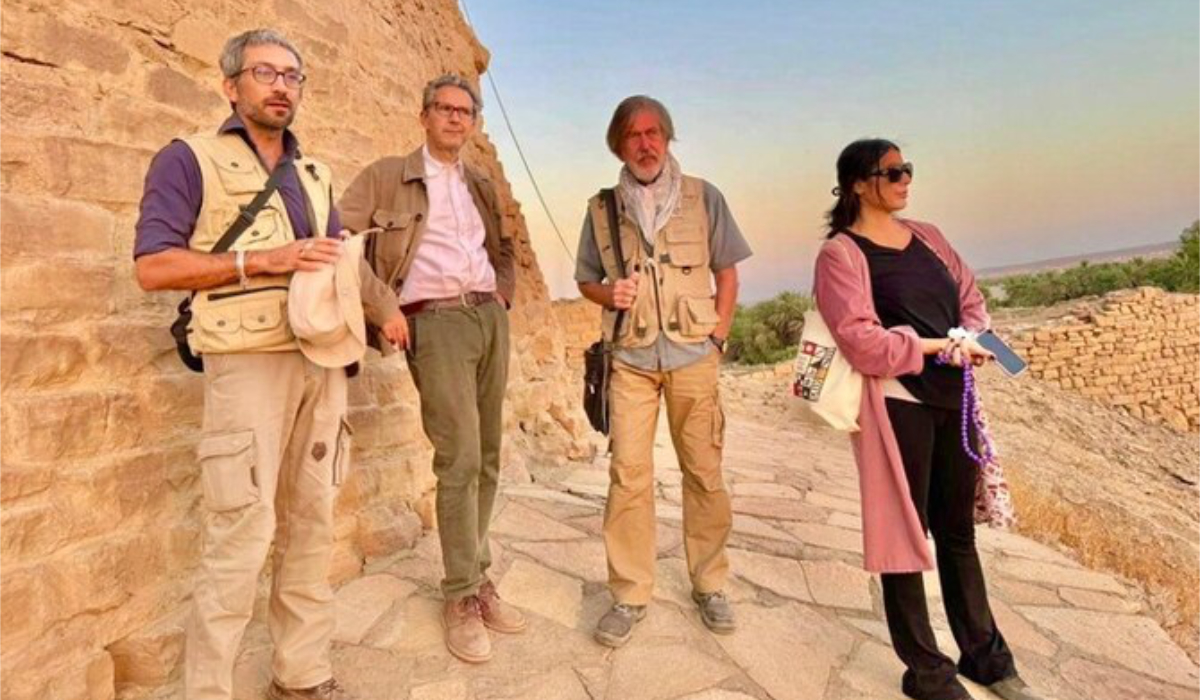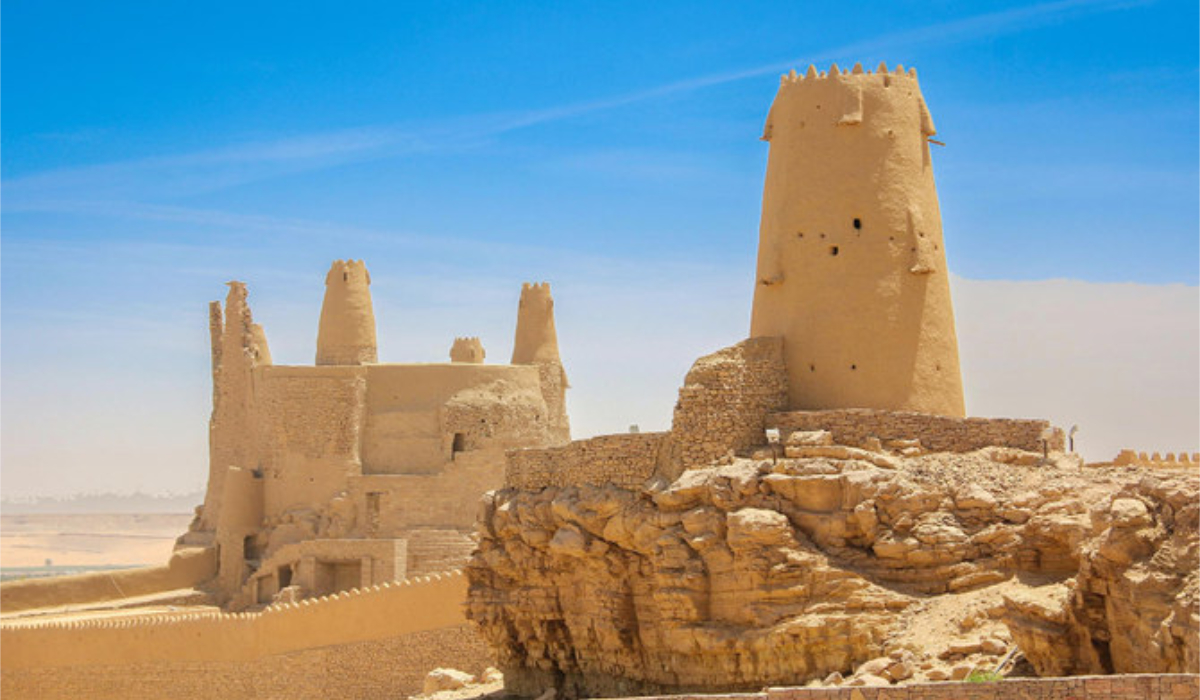RIYADH: Global and Saudi organizations on Tuesday highlighted the significant work of women in combating drought and boosting local economies to mark the International Day of Rural Women.
It follows a report released by the UN Convention to Combat Desertification and the Food and Agriculture Organization that highlights the impact of droughts on women, while emphasizing their resilience and leadership in addressing climate challenges.
The insights from the report will serve as a foundation for discussions at COP16, which will be hosted by Saudi Arabia in December.
The report calls for recognizing and supporting women-led initiatives to protect vulnerable communities from the harsh consequences of drought.
In addition, it highlights the critical importance of securing women’s land rights in achieving food security.
Majid Al-Buraikan, spokesperson for the sustainable agriculture program Reef Saudi, discussed the vital role rural women play as a valuable human resource capable of contributing to diverse activities and projects, the Saudi Press Agency reported.
He also highlighted the program’s initiatives to create more job opportunities for women through involvement in rural activities, participation in the labor market and skill development aimed at enhancing their economic stability and achieving financial sustainability.
Al-Buraikan said that Reef Saudi has facilitated greater participation of rural women in work by providing advisory and consultancy services designed to integrate them into various activities.
The program also offers training to boost their skills, fosters a supportive investment environment and helps establish incubators for rural women entrepreneurs, enabling the growth of small and complementary rural enterprises, he added.
Since launching in 2020, Reef Saudi has enabled 57,719 rural women to become eligible for support across multiple sectors.
This includes 1,897 women in the coffee sector, 6,171 in the honey sector, 4,577 in fruit production, 245 in the rose sector, 2,008 in rain-fed crops and 42,621 in value-added sectors.
Al-Buraikan added that 54,933 women have been fully qualified across all sectors to date through Reef Saudi, the SPA reported.
Ibrahim Thiaw, executive secretary of the UNCCD, said that while women are often viewed as the most vulnerable during droughts, they also demonstrate extraordinary resilience and resourcefulness.
Across regions such as the Sahel, northern Kenya, Iran, Peru and Morocco, women have been at the forefront of climate resilience efforts, devising innovative strategies to help their families navigate extreme conditions, he said.
Thiaw said that addressing gender inequality is not only a matter of equity, but also a significant opportunity to unleash untapped potential in combating climate change.
Women disproportionately experience the adverse effects of drought due to entrenched gender inequalities that limit their access to essential resources like land, water and financial services.
These disparities lead to heavy workloads for women, who are often responsible for water collection, forcing them to travel great distances and exposing them to dangerous situations.
Additionally, the burden of unpaid care work further complicates women’s ability to cope with drought, underscoring the need for drought strategies that address their specific challenges.
Regardless of the systematic obstacles, women are innovating solutions to help their communities adapt to worsening environmental conditions.
The report said that women produce up to 80 percent of food in developing countries yet own less than 20 percent of land worldwide.
This disparity limits their access to vital resources, such as credit and training, which are crucial for preparing for and recovering from drought.
Further, droughts account for 15 percent of disaster-related economic losses globally and lead to significant livestock deaths, the report said.
In regions dependent on rain-fed agriculture, for example, the effects of drought threaten the livelihoods of women, who constitute a significant portion of the agricultural workforce.
Additionally, the UN report shows that land degradation exacerbates these issues, with about 40 percent of the world’s land being degraded, affecting more than 3.2 billion people.
However, research indicates that when women have secure land ownership, household nutrition improves, spending on children’s education increases and overall economic conditions for families are enhanced.
The report also includes case studies from many countries showing women’s leadership in improving drought resilience.
In one example, pastoralist women in Peru are combining modern and traditional techniques for ecohydrological monitoring to manage water resources effectively and ensure year-round vegetation for livestock.
Such an example illustrates how women are making significant strides in building resilience against drought.









